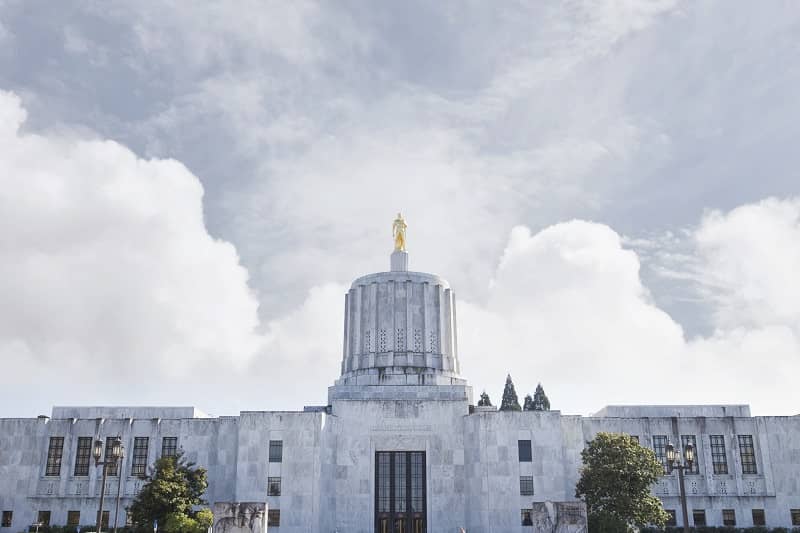Policymakers in Oregon have concluded that global warming is a crisis, that the use of fossil fuels is the primary cause of warming, and that state policies must be enacted to stabilize the global climate. Because of this, Oregon has adopted one of the most ambitious greenhouse gas reduction goals in the world. Wide-ranging policy initiatives are being planned that will have large negative impacts on Oregon’s economy and standard of living.
In October 2008, Governor Kulongoski announced his Climate Change Agenda, introducing a comprehensive legislative package that attempts to aggressively mitigate the impacts of global warming. The main feature of the agenda is the adoption of a regional cap-and-trade program through the Western Climate Initiative. The program “caps” total emissions at some arbitrary level and then issues permits, each of which allows a certain amount of emissions. In order to reach reduction goals, the cap declines over time.
A recent independent economic study, Oregon Greenhouse Gas Reduction Policies: The Economic and Fiscal Impact Challenges, assesses the quantifiable and measurable costs in the debate over whether to implement a cap-and-trade program or any other wide-ranging greenhouse gas reduction strategy. It finds the costs of enacting such policies to be tremendous. If a cap-and-trade program were to regulate and significantly reduce greenhouse gases, the study predicts that by 2020 Oregon’s economic growth would be cut approximately in half, there would be 90,000 fewer jobs, and state and local revenues would be $4.4 billion dollars lower.
A cap-and-trade program is essentially a complex tax on energy that will have a direct and negative effect on businesses and individuals while offering little or no environmental benefit. All alternative and complementary strategies, such as congestion pricing and a carbon tax, able to provide greater economic and environmental benefits should be considered before charging ahead, with little regard to the cost, on a cap-and-trade program here in Oregon.
© 2008, Cascade Policy Institute. All rights reserved. Permission to reprint in whole or in part is hereby granted, provided the author and Cascade Policy Institute are cited. Contact Cascade at (503) 242-0900 to arrange print or broadcast interviews on this topic. For more topics visit the QuickPoint! archive.











